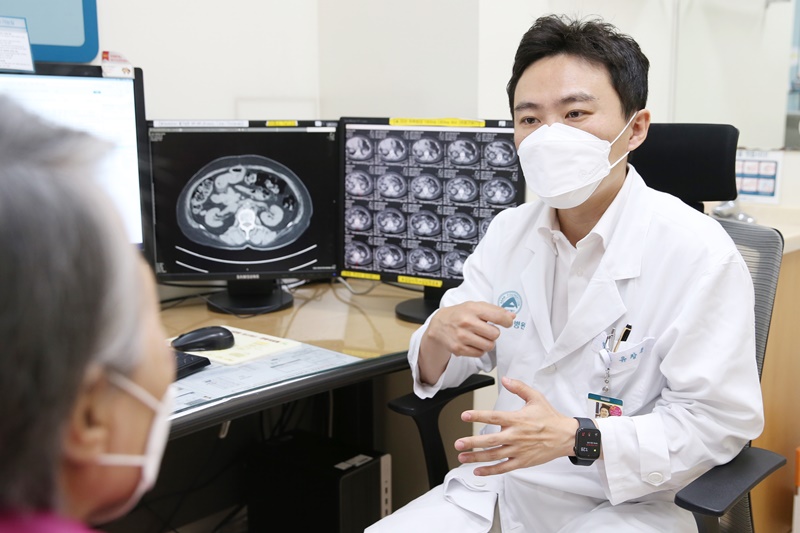-
- Global AMC MENU
- NEWS
- HEALTH
- PEOPLE
- Introduction

▲Professor Changhoon Yoo of the Division of Oncology at Asan Medical Center is treating a cancer patient.
While vitamin D is generally recognized as having a positive effect on cancer prevention and treatment, a recent study suggests that its effectiveness may vary depending on the cancer type and gender.
A research team led by Professor Changhoon Yoo of the Division of Oncology at Asan Medical Center analyzed the relationship between serum 25-hydroxyvitamin D levels and survival rates in 173 patients with advanced biliary tract cancer who had undergone second-line chemotherapy. The results showed that higher vitamin D levels in female patients increased the risk of death by about 15%. Notably, the graph of the mortality risk in female patients exhibited a clear upward trend as vitamin D levels increased. In contrast, no significant correlation was found in male patients. Regardless of gender, higher vitamin D levels were associated with a 51% reduction in mortality risk in the underweight patient group, with a body mass index of less than 18.5.
Although further research is needed to explain why the findings contradict the conventional belief that vitamin D benefits the cancer treatment, the research team hypothesized biological differences between cancer types and interactions with sex hormones might play a role. They also speculated that while optimal vitamin D levels contribute to cancer prevention and treatment, excessively high vitamin D levels could trigger inflammatory responses or cytotoxicity.
Professor Yoo stated, “This study is the first to show that the effects of vitamin D may vary depending on cancer types, gender, and BMI. Instead of indiscriminately administering high-dose vitamin D, it is necessary to take a more cautious approach by considering the characteristics of the cancer type and the patient.”
The study was published in the international journal ‘Cancer Medicine.’












